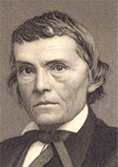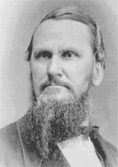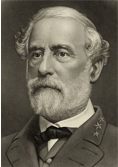Confederate Truths: Documents of the Confederate & Neo-Confederate Tradition from 1787 to the Present.








S.A. Cunningham, editor of the "Confederate Veteran" urges white solidarity
Confederate Veteran, S.A. Cunningham, Vol. 17 No. 2, February 1909, pp. 54. He has another Solid South editorial, where it is defined as southern white solidarity. The Confederate Veteran was the official publication of the United Confederate Veterans, United Daughters of the Confederacy, Confederated Southern Memorial Association, and the Sons of Confederate Veterans.
SHOULD THE SOLID SOUTH BE BROKEN?
The VETERAN is not in politics. President-elect Taft is an admirable man. He is able, and it is believed he will be conservative. It is manifest that he desires to learn as thoroughly as practicable the Southern people and to be helpful to them. He can do that, but the way to accomplish it is a profound problem for which he will share lasting gratitude if he succeeds in solving it. If his motive be to break "the solid South" for party purposes, he may undertake the appointment of renegades to office, a plan that has been in operation for forty years, and it has had much to do in keeping the South united. If Mr. Taft will show an earnest desire to treat the South as he will other sections of the country, yet let them manage their own peculiar institution—the race problem being the greatest in the government—and if he will consider the men for preferment who are steadfast to principle, the result may be for the good of the nation. If his purpose be to obliterate the party most formidable to his own and succeeds, then some other form of party issue may be evolved that will be good for the South and the country.
The dominant party has not at all been considerate of the South. The issues most prominent between the two parties—such as the tariff, for instance—are as vapor compared to the great questions demanding constant watchfulness in the conquered section. The power at the North, practically united as it mainly is against the South, is as great as it was in 1865; so that, while complaint is made against concentrated Southern sentiment, "the solid South," it is equally clear that we may say: "You are another."
As one who has always voted for Bryan, yet not admiring him for anything especially good he has ever said of or for the South, it may be well now to appeal to the powerful North for justice; but it will not be in a truckling spirit. The appeal would be to duly respect us, and in the promotion of men to meritorious positions by all means select those who will not betray their people.
The bed rock of patriotism in the South is exacting in matters of justice and integrity. Our plea to the South is therefore to remain solid, whether or not there be any weaker party in affiliation. Every Southerner should be proud of the loyalty and devotion of his fellows throughout Dixie Land. Devotion to our common interest is a guarantee of dignity and the respect with which our people will be possessed as long as we remain united. Let us be true to each other, therefore, as long as there is memory of sacrifice.